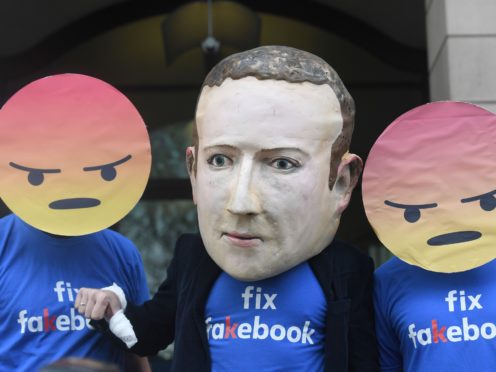British and Canadian politicians have joined forces in calling on Facebook founder Mark Zuckerberg to explain “failures of process” regarding the spread of propaganda on the social network.
Leading MPs from both parliaments co-signed a letter to Mr Zuckerberg announcing an “international grand committee” on “disinformation and fake news” to be held at the end of November.
Parliamentarians from other countries have been invited to attend the “unprecedented joint hearing” and Mr Zuckerberg has been given until Wednesday November 7 to respond.
“Over the past year, our committees have both sought evidence from a Facebook executive with sufficient authority to give an accurate account of recent failures of process, including the recent Cambridge Analytica scandal and subsequent data breaches.
“You have chosen instead to send less senior representatives, and have not yourself appeared, despite having taken up invitations from the US Congress and Senate, and the European Parliament,” wrote Damian Collins, chair of the digital, culture, media and sport (DCMS) select committee, and Bob Zimmer, chair of the Canadian parliament’s committee on access to information, privacy and ethics.
It is the third time Mr Collins has called on Mr Zuckerberg to give evidence before the DCMS committee’s inquiry into disinformation and “fake news”.
Together with @bobzimmermp, I have today written to Mark Zuckerberg inviting him to give evidence to an international committee to be held in London on 27th November pic.twitter.com/jHhQ5S3SNt
— Damian Collins (@DamianCollins) October 31, 2018
Facebook has grappled with a string of scandals in recent years as evidence has emerged of political actors using the network to influence voters around the world.
The social media giant was fined £500,000 by the Information Commissioner’s Office in July, the maximum fine possible, for failing to protect millions of users’ personal information which ended up in the hands of controversial election consultants Cambridge Analytica.
A week later the Electoral Commission fined Brexit campaign groups Vote Leave and BeLeave, and referred them to the police for breaches in campaign spending centred around political advertising on Facebook.
This year, the company also released details of “inauthentic co-ordinated activity” on the platform originating from Russia and Iran which targeted British and American politics.
Mr Zuckerberg has repeatedly pledged to “fix Facebook” in public announcements since criticism of political operations on the network began in 2016.
“We call on you to take up this historic opportunity to tell parliamentarians from both sides of the Atlantic and beyond about the measures Facebook is taking to halt the spread of disinformation on your platform, and to protect user data,” added Mr Collins and Mr Zimmer.
